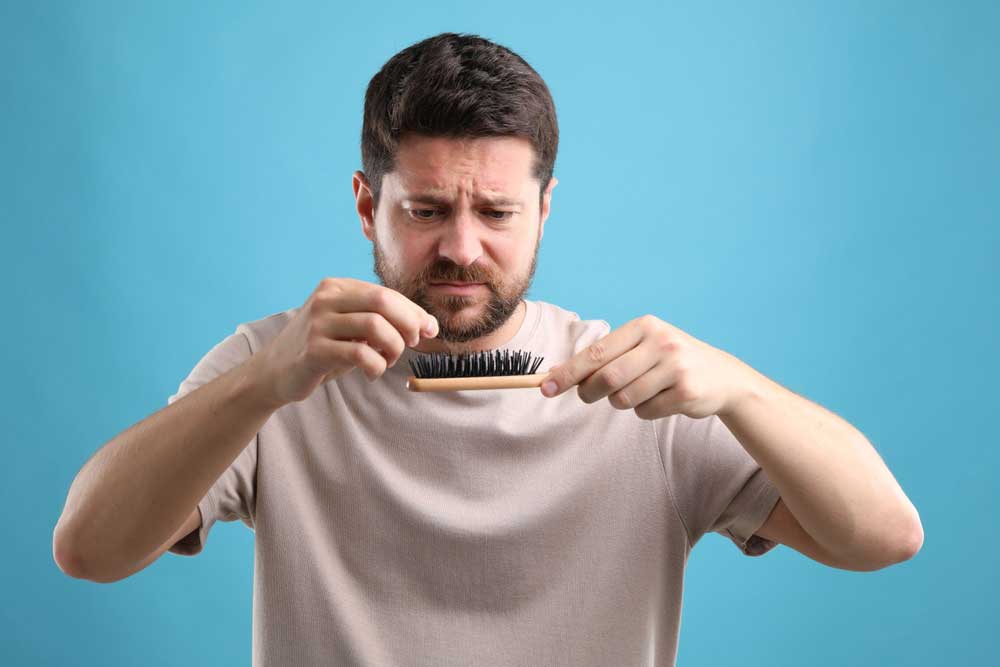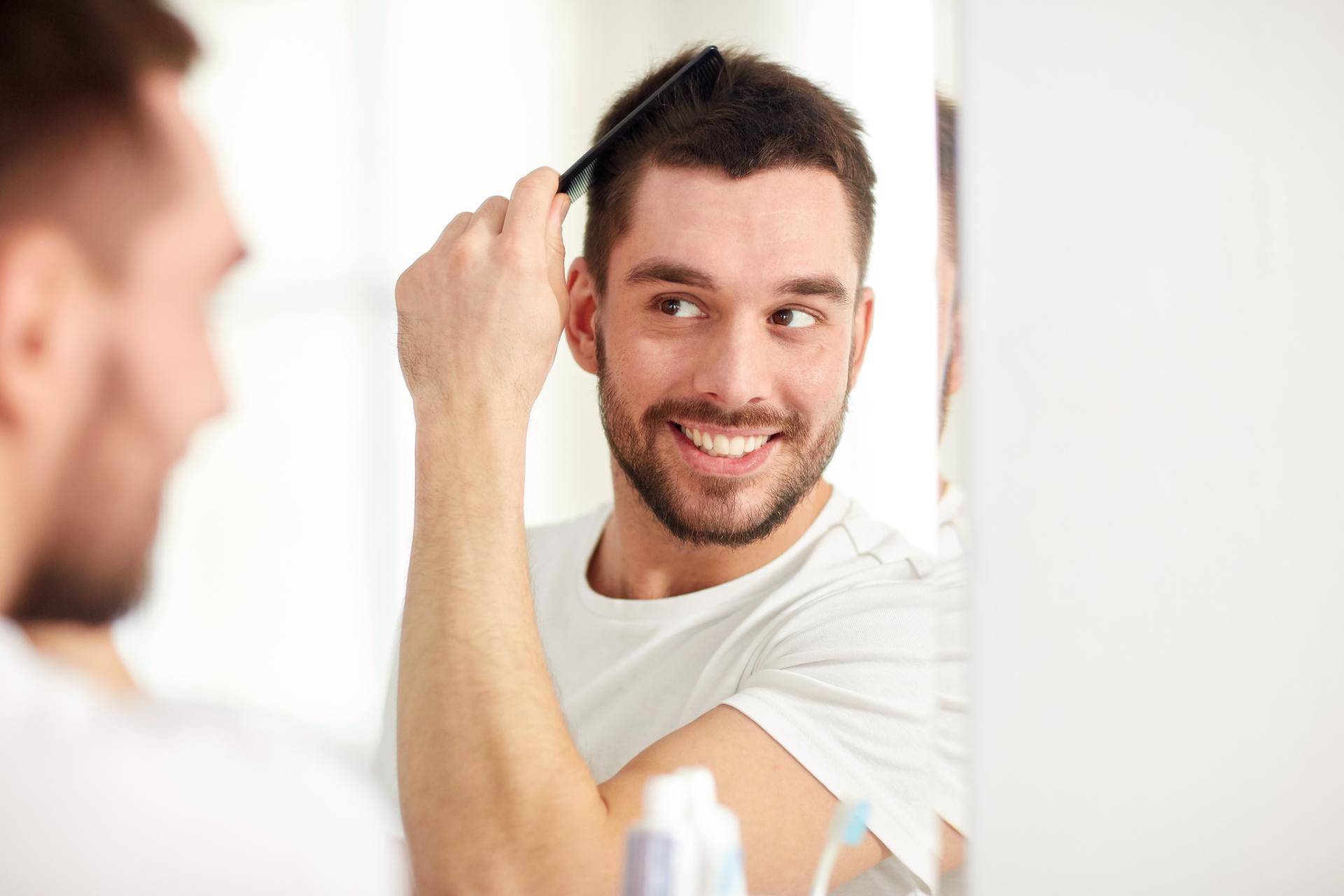Genetics
By age 40, about half of all men will experience hair loss due to hereditary conditions like androgenic alopecia (male pattern baldness). Likewise, more than half of women will experience genetic hair loss (female pattern baldness) before the age of 70.
Medical Conditions
Almost one in 10 women aged 20 through 49 suffers from anemia due to an iron deficiency (the most common type of anemia), which is an easily fixable cause of hair loss. Your doctor will have to do a blood test to determine for sure if you have this type of anemia. Hypothyroidism can be another cause. Hypothyroidism is the medical term for having an underactive thyroid gland. This little gland located in your neck produces hormones that are critical to metabolism as well as growth and development and, when it’s not pumping out enough hormones, can contribute to hair loss. Your doctor can do tests to determine the real cause
Hormonal Changes
Just as pregnancy hormone changes can cause hair loss, so can switching or going off birth-control pills. This can also cause telogen effluvium, and it may be more likely if you have a family history of hair loss. The change in the hormonal balance that occurs at menopause may also have the same result. “The androgen (male hormone) receptors on the scalp become activated,” explains Mark Hammonds, MD, a dermatologist with Scott & White Clinic in Round Rock, Texas. “The hair follicles will miniaturize and then you start to lose more hair.”
Stressing Your Hair
Over-treating your hair. This includes color treatments, perms, relaxers, and more. Using harsh hair products, such as extreme-hold hair sprays and gels. Temporary color can also be harsh for your hair.
Wearing your hair up too tightly can be another cause. Whether you’re wearing an up-do or pulling your hair up in a ponytail for working out, this can tug on your hair and break it from the follicles, causing thin spots over time.
Stress
Experiencing uncontrolled stress. Stress is related to an uptick in hormones like cortisol. Too many stress hormones may kill off new hairs that are trying to grow from the hair follicles. Any kind of physical trauma—surgery, a car accident, or a severe illness, even the flu—can cause temporary hair loss. This can trigger a type of hair loss called telogen effluvium. Hair has a programmed life cycle: a growth phase, rest phase and shedding phase. “When you have a really stressful event, it can shock the hair cycle, (pushing) more hair into the shedding phase,” explains Marc Glashofer, MD, a dermatologist in New York City. Hair loss often becomes noticeable three-to-six months after the trauma.
Medications
Antidepressants, blood thinners, and other classes of medication may also promote hair loss. More common among them are certain blood thinners and the blood-pressure drugs known as beta-blockers. Other drugs that might cause hair loss include methotrexate (used to treat rheumatic conditions and some skin conditions), lithium (for bipolar disorder), nonsteroidal anti-inflammatory drugs (NSAIDs) including ibuprofen, and possibly antidepressants.
What to do: If your doctor determines that one or more of your medications is causing hair loss, talk with him or her about either lowering the dose or switching to another medicine.
Lack Of Protein
If you don’t get enough protein in your diet, your body may ration protein by shutting down hair growth, according to the American Academy of Dermatology. This can happen about two to three months after a drop in protein intake, they say. Moreover, incorporating the right vitamins into your diet will also play a large role in hair growth as well.
What to do: There are many great sources of protein, including fish, meat, and eggs. If you don’t eat meat or animal products, there are plenty of vegan and vegetarian protein sources.
You Might Also Like To Read
5 WAYS STRESS CAUSES HAIR LOSS
Stress has way more of an impact on hair loss than you thought…
It’s best to learn these signs sooner than later!
5 TIPS TO PROTECT YOUR HAIR IN THE SUMMER
Though it may seem obvious, many don’t follow these steps to keep their hair safe from the summer sun.


